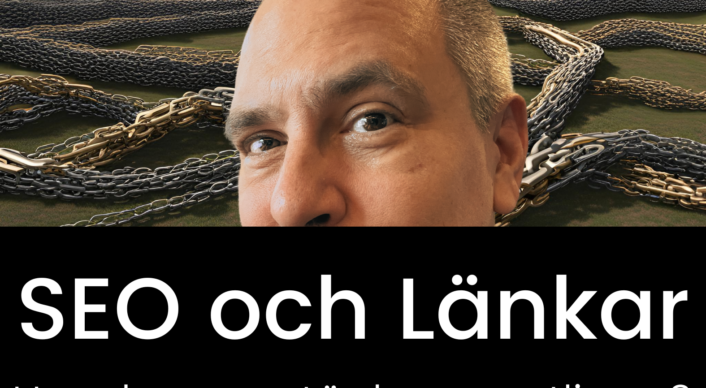
Links remain one of the most crucial components of SEO, but the way we approach link-building has evolved and matured. By focusing on quality and relevance, you can build a strong link profile that not only improves your visibility in search engines but also enhances your brand and online authority. Over the years, I’ve observed how link-building has changed, both in terms of value and how it’s handled by search engines like Google. Today, we’ll explore why links are still among the most critical elements in SEO.
Links function as the currency of the internet. They are the means by which websites “vote” for each other, signaling to search engines which page is most relevant or authoritative on a given topic. A link from a reputable website to your own can be compared to an endorsement or a badge of quality. For instance, if you work in accounting, a link from the Swedish Tax Agency (Skatteverket) would be highly valuable—not just because the site is authoritative, but also because it’s relevant to your field.
Quality Over Quantity
There was a time when the quantity of links was more important than their quality. However, with updates in Google’s algorithm, the focus has shifted toward link quality. A single link from a relevant, high-quality source is now far more valuable than ten links from obscure or irrelevant websites. Who doesn’t remember the era of link directories, or when relevance was nearly insignificant?
Natural Link Profile

Natural is the best
Building a natural link profile is essential. This means that links to your website should come from diverse sources and accumulate gradually over time. A natural link profile has become even more critical since Google’s Penguin update rolled out in 2012. This update specifically targets and penalizes websites that use manipulative link-building strategies to artificially boost their rankings. A natural link profile is characterized by organic variation in both link sources and anchor texts. This implies that incoming links should originate from a wide array of relevant and authoritative websites rather than spammy or irrelevant ones. Additionally, anchor texts should naturally vary, including brand names, generic terms, and descriptive phrases, instead of excessively using exact-match keywords.
It may be tempting to opt for quick fixes. However, such tactics can lead to severe penalties from search engines, which may be challenging to recover from. There are many opinions on exactly what constitutes risky practices, where the boundaries lie, and so forth. Personally, I believe you should fully understand the implications of your link-building efforts, regardless of the method used. I’ve seen countless examples where even the most organic activities—like globally viral content—resulted in websites being filtered or penalized for a long period. It’s not only links from Fiverr that pose risks; anything done at scale requires careful consideration and sensitivity.
If You’ve Run into Trouble
If you’ve encountered link-related trouble—though this wouldn’t be my first guess, as content issues are much riskier these days—here are some tips on how to proceed.
Further Reading
- Watch Out for Links
- Think Links
